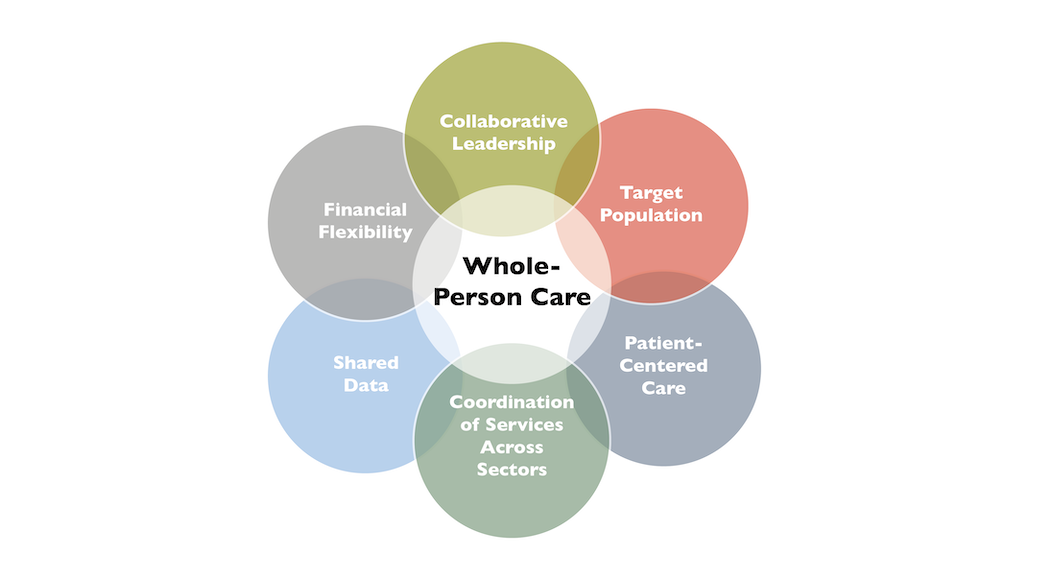Health providers serving Medicaid populations have long recognized the close interplay between an individual’s socioeconomic circumstances, psychosocial conditions and health. Medicaid patients often have unmet health, mental health and substance use needs as well as challenging socioeconomic issues such as housing instability, unemployment, and food access, which influence access to care and health outcomes. However, fragmented financing and infrastructure systems for social services, behavioral health, and health services often result in uncoordinated or potentially duplicative services and less than optimal outcomes at the patient level.
Blue Shield of California Foundation supported JSI and its partners, the California Association of Public Hospitals and Health Systems and California Health Care Safety Net Institute, to conduct a research study examining the opportunities and challenges of increased coordination between the delivery of health, behavioral health, and social services to provide “whole-person care.” We defined whole-person care as “the coordination of health, behavioral health, and social services in a patient-centered manner with the goals of improved health outcomes and more efficient and effective use of resources.
From June 2013 to August 2014, JSI conducted a literature review on approaches to care coordination across systems and conducted interviews with representatives from public hospitals, health centers, health departments, managed care plans, behavioral health, and county-based social services in five, diverse California counties representing 43% of California's population. Through convening county experts and conducting key-informant interviews with stakeholders, JSI explored potential opportunities and barriers for collaboration between sectors.
Based on synthesis of primary and secondary research, JSI articulated a conceptual framework of six elements of whole-person care: target population, patient-centered care, coordination of services across sectors, shared data, financial flexibility and collaborative leadership. JSI analyzed the qualitative research and identified actions and policy opportunities at the county, state and federal levels. JSI also explored specific levers and recommendations for advancing whole-person care in California’s 1115 Waiver.
JSI authored four key deliverables based on this research and a follow-up grant to build upon the work in Whole-Person Care:
National Approaches to Whole-Person Care in the Safety Net
Opportunity for Whole-Person Care in California
California's 1115 Waiver: An Opportunity to Move from Coverage to Whole-Person Care
Integrating Housing Strategies with Health: An Opportunity to Advance Whole-Person Care in California
Developing Safety-Net Care Management in California: An Opportunity for Whole-Person Care
The results of this project included a day dedicated to exploring county-level whole-person care strategies at CAPH’s 2014 Annual Conference and a proposal of whole-person care pilots in California’s 1115 Waiver Proposal: Medi-Cal 2020. The framework has also proven useful for analyzing policy options, such as health homes and housing and health innovations, designed to meet the Triple Aim in Medicaid.


